One of the few
As a member of the University Air Squadron, he joined up early on, desperate to fly fighters. This wasn't down to patriotism, or a feeling that this was a war against evil, it was more a desire to be involved in the adrenaline rush of flying. In very simple terms he went to war for the excitement, and is honest about that.
But Hillary was undoubtedly a hero. Getting in at an early stage meant that he was sent to Scotland where he and a group of friends got a fair amount of training before the Battle of Britain kicked off. Once battle commenced Hillary was sent down south, and by late August / early September was at the height of the battle for supremacy over Britain's skies. And then he was shot down....
The last enemy divides neatly into two parts - his time in Oxford, his own, not particularly engaging, portrayal of his character at this period, joining the RAF, life in training, and then on a fighter station; and then the period after he was shot down, the grim period in hospitals and convalescent homes as plastic surgeons at the leading edge of their profession grapple to deal with the damage caused to skin and muscle and bone by fire, shrapnel and bacteria.
Hillary was horribly burned, his face and hands dreadfully damaged. But through this damage came this book - a story of incredible heroism, the pilots who flew again and again and again with every day a toll of their friends killed. A constant refrain through the first half of the book is "From this flight......did not return". It's said so laconically, almost as though he didn't care, but he remembers every name, all 16 of the group of 24 that he started flying with who never made it to the end of the Battle of Britain. This is not a man who doesn't care.
And then there are the heroes of the second part of the book - the young volunteer nurses with little experience of nursing, leaving the room to vomit at some of the dreadful sights they see, but coming back time and again to look after the victims of war, the surgeons making new advances, the civilians trying to live a normal life in abnormal circumstances.
Hillary was seen as a hero after Last Enemy was published in 1942. It embarrassed him deeply. Desperate to rejoin the RAF despite his terrible injuries, he pestered High Command until he was taken back again. He probably shouldn't have been allowed to fly, and died when his plane crashed during a night training exercise in 1943.
This is more than just an autobiography. I think any of the autobiographies published contemporary with the war rather than after it, are rather different in tone. But this is truly special. It's easy to forget how young many of the combatants were, and this book marks a coming of age - it's the point in Hillary's life, where everything changes for him, and not just because of the physical problems that result from his accident. He is a different man recovering in hospital from the boy who joined the RAF only a few months before.
It's a book about how war, or any truly dreadful experience can change people, as Hillary finds his own epiphany in what was both the darkest and, ironically, the brightest period of his life. What shines through this book is not just the horror of war, but the indomitability of the human spirit. Having finished it, the sections that spring first to my mind are not the litanies of death, but the Scottish evacuees making a Good Luck sign out of stones for their friends, the pilots; the joy of Hillary when he is first able to see the faces of the nurses who had nursed him through the early days after he was shot-down; the sheer joy of flying and of acrobatics; the French pilot's hilarious account of his (not-so-hilarious) accident.
It's a wonderful book. A must read for anyone interested in military history, or the Royal Air Force, but also one for anyone who occasionally despairs of humanity. It shows that even in the darkest days, there is always goodness and love and humour.
I was touched to see among the publishing information at the front of the book (yes, I always read it, it's one of the inheritances of being a printer's daughter) were a few lines referring to the Blond McIndoe Research Centre. Archibald McIndoe was the pioneering plastic surgeon who operated on Hillary, and many a seriously wounded young pilot. They are still going strong today doing wonderful work treating burns, and are always in need of support. To find out more about them, and the fabulous work that they do go to Blond McIndoe.

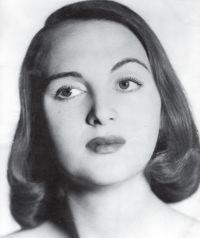
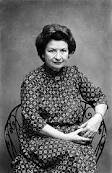

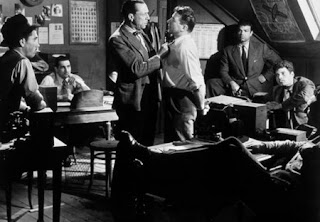
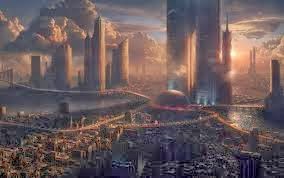
.jpeg)
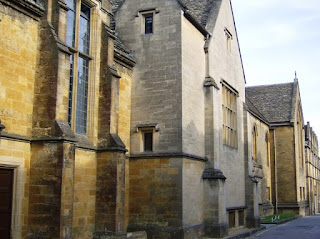
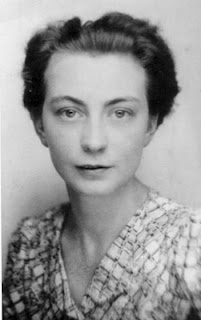
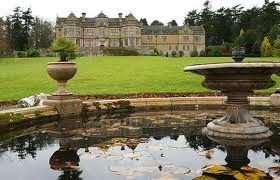
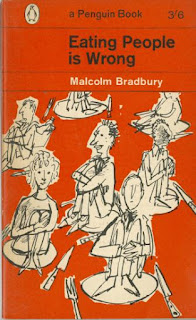
Comments